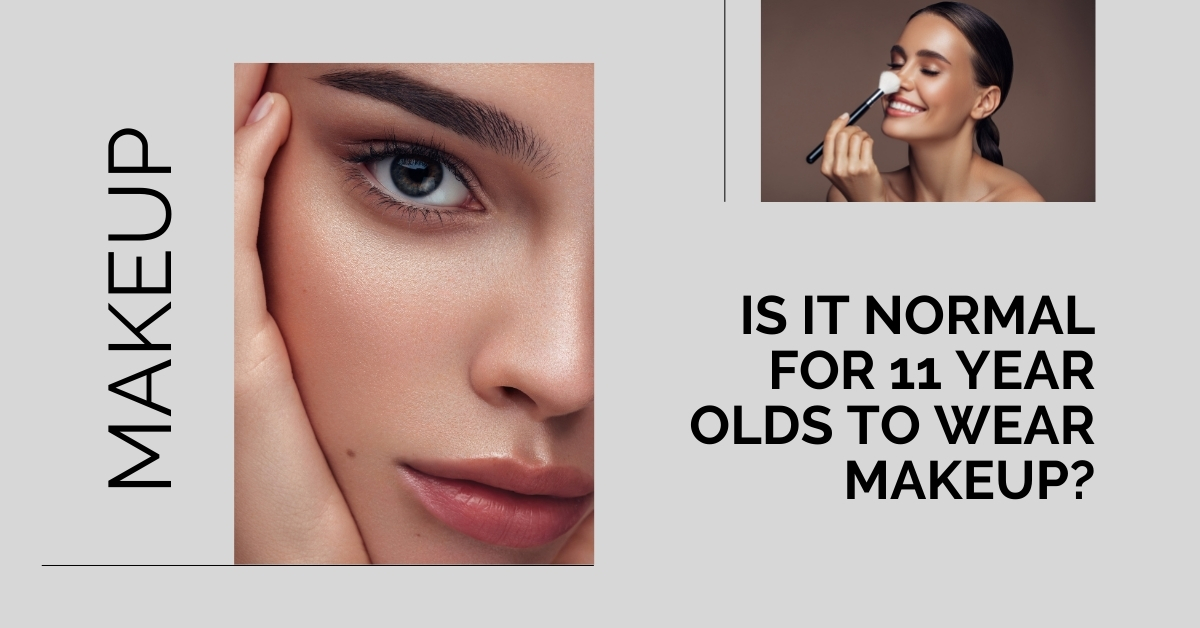The question of whether it is normal for 11-year-olds to wear makeup is one that many parents, guardians, and even the children themselves grapple with. As children approach adolescence, they begin to explore different aspects of their identity, and makeup can often become a part of this exploration. But is it too early, or is it simply a natural part of growing up?
Understanding the Appeal of Makeup for Preteens
At 11 years old, children are typically in the early stages of puberty, a time when they start to become more aware of their appearance and how they are perceived by others. Makeup, for many preteens, can be a fun and creative way to express themselves. Whether it’s experimenting with a bit of lip gloss or trying out eyeshadow, the appeal of makeup lies in its ability to transform and enhance features, offering a sense of control over one’s appearance.
Additionally, with the rise of social media and beauty influencers, preteens are more exposed to makeup trends than ever before. Platforms like YouTube, Instagram, and TikTok are filled with tutorials and beauty tips that make makeup seem like an exciting and desirable activity. This exposure can lead to an increased interest in makeup at a younger age.
The Role of Peer Pressure and Societal Influences
Peer pressure is another significant factor that can influence an 11-year-old’s desire to wear makeup. As children begin to navigate social dynamics, they may feel pressured to conform to the behaviors and trends popular among their peers. If makeup is something their friends are starting to wear, they may want to participate as well to fit in.
Societal influences also play a role in normalizing makeup for preteens. From advertising to entertainment, children are often exposed to images of celebrities, influencers, and even animated characters wearing makeup. This can create an impression that wearing makeup is not only acceptable but also expected as they grow older.
Parental Concerns: What’s Normal?
Many parents worry about whether allowing their 11-year-old to wear makeup is appropriate. Concerns often center around the fear of their child growing up too quickly, being influenced by unrealistic beauty standards, or becoming overly focused on their appearance.
It’s important to note that what is considered “normal” can vary widely depending on cultural, familial, and individual values. In some families, makeup might be seen as a harmless form of self-expression, while in others, it may be discouraged until a certain age. There’s no one-size-fits-all answer, but rather a range of acceptable practices depending on the context.
Setting Boundaries: A Balanced Approach
If your 11-year-old is interested in wearing makeup, it may be helpful to have an open conversation about it. Understanding their reasons for wanting to wear makeup can help you determine the best approach. For some children, it may simply be about having fun and expressing creativity, while others might be influenced by external pressures.
Setting boundaries can be a practical solution. For example, you might agree to allow certain types of makeup, such as lip balm or light blush, while saving more dramatic looks for special occasions. This approach can help strike a balance between allowing self-expression and maintaining age-appropriate limits.
Encouraging Healthy Attitudes Towards Beauty
Regardless of whether you decide to allow your 11-year-old to wear makeup, it’s essential to encourage healthy attitudes towards beauty and self-esteem. Emphasize that makeup is a choice, not a necessity, and that true beauty comes from confidence, kindness, and individuality.
Remind them that the images they see online or in media are often edited or filtered and that everyone has natural beauty that doesn’t require enhancement. Teaching your child to appreciate their unique features without relying solely on makeup can foster a positive self-image as they grow.
Conclusion: Navigating Makeup for Preteens
So, is it normal for 11-year-olds to wear makeup? In today’s world, it’s becoming increasingly common, but it’s up to each family to decide what’s appropriate based on their values and the individual child’s maturity level. Open communication, setting boundaries, and fostering a healthy self-image are key to navigating this aspect of growing up.
Ultimately, allowing your child to experiment with makeup can be a fun and creative experience, but it’s important to ensure that it’s done in a way that aligns with your family’s values and supports your child’s overall well-being.
